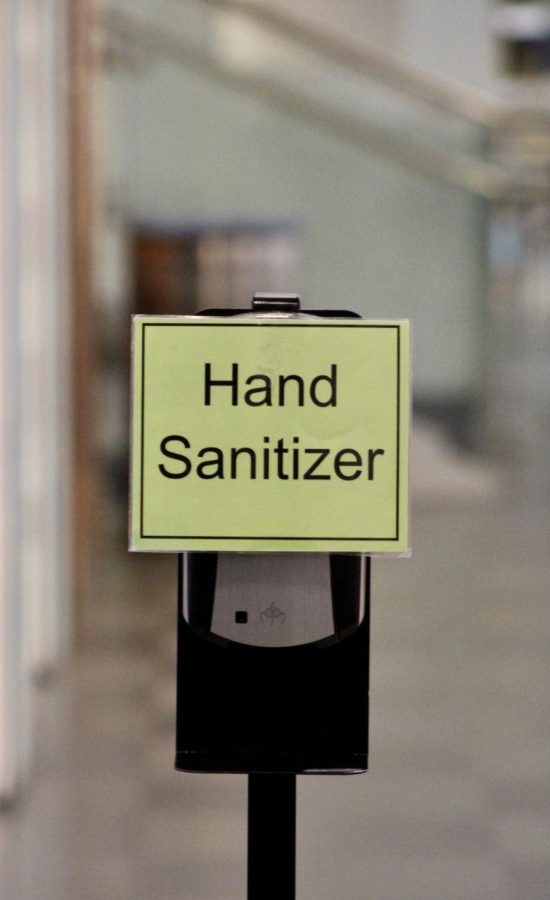What are the next steps to mentally handling the Omicron virus?
The CDC recommends using hand sanitizer as much as possible, especially in public places, as well as masks and taking care of social distancing.
December 13, 2021
Before we could even recover from the Delta variant of COVID-19, a new variation of the virus was formed: the Omicron variant.
The virus is always changing, and to many people, it seems as though this will simply continue on. So how are we going to protect ourselves from the new variant so that another quarantine and mass deaths can be prevented and so that we survive and stay healthy mentally?
The CDC recommends that masks, handwashing, and other precautions should be taken up more vigorously, just as before, “regardless of vaccination status”. Social distancing in larger crowds and contact tracing in controlled environments is a must, especially during times like these.
But how can we help ourselves mentally as well during this situation?
The unfortunate occurrence of COVID-19 globally impacted millions, if not billions of people all over the world, both physically and mentally. The sudden social cut off from social interaction negatively impacted the large population of the world which was required to go under quarantine in order to protect themselves and others from the virus.
But, as we have begun to become accustomed to this new lifestyle, we must make changes accordingly in order to preserve our mental health.
A few suggestions are “meditation” along with “finding your flow” and “focusing on what you can control”. The three main points of coming to terms with something, especially something so life-changing as the virus, are: coming to terms with it, finding what you can control, then adjusting accordingly.
“We can’t prevent the virus from mutating… but we can control what we do at 10 a.m.” – Dr. Barbara Greenburg, New York Times
In my experience, it’s much easier, especially in a situation where there isn’t much that can be controlled, to come to terms with what is happening. It has also been easiest to “find your flow” by understanding exactly what you need and how you work so that when you have to make changes, you know what to adjust.
“We can’t prevent the virus from mutating… but we can control what we do at 10 a.m.,” Dr. Barbara Greenburg states in the New York Times. Sometimes, when someone feels as though life cannot be controlled, they’ll develop something called learned helplessness, which, by definition, is its literal name. An individual will fail enough times to stop trying to control anything altogether, even when it is something that they can control, which is why it is important to actively focus on what we can currently control, such as how we protect ourselves and process the information we are being given.
For example, rather than obsessively watching the news for updates, it might be more beneficial to control the amount of time we watch the news, maybe instead take up a healthy hobby to focus on in order to healthily process new information, and, if possible, use it to release stress.
Such things can help us progress through even times such as this, and become even stronger, and continue to grow as people.


